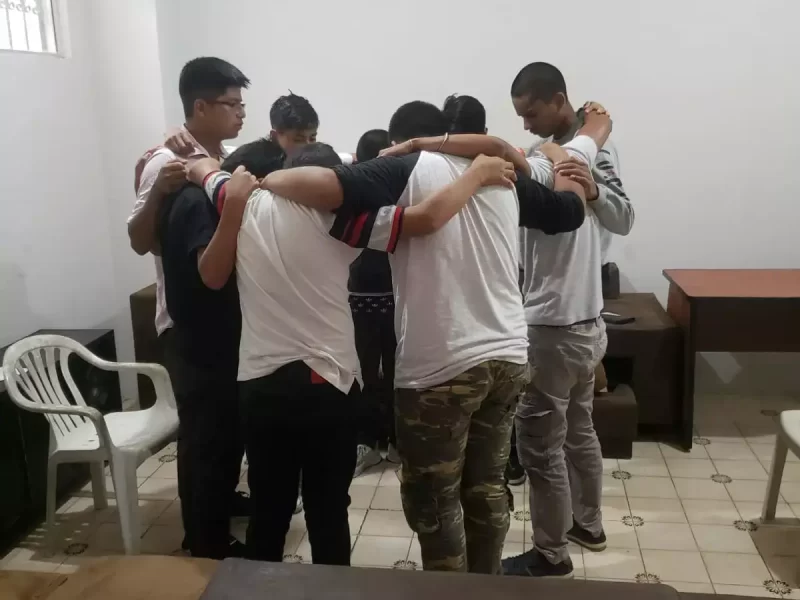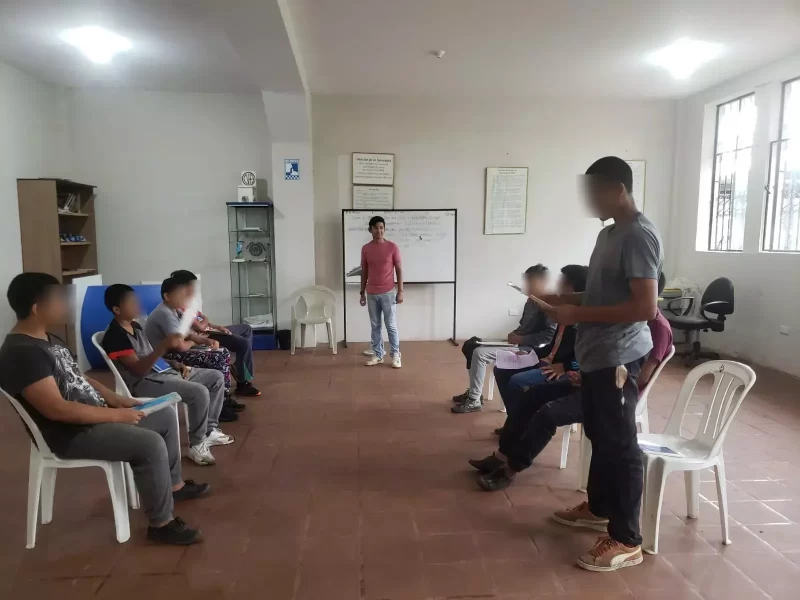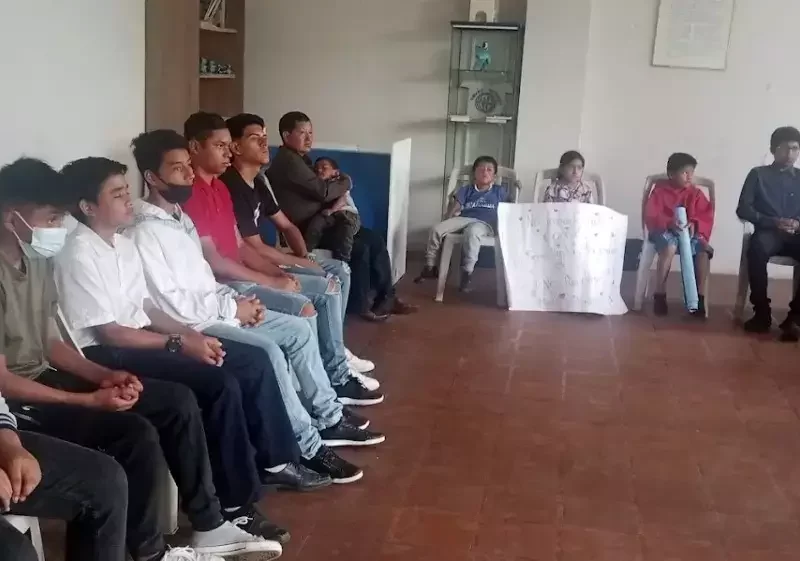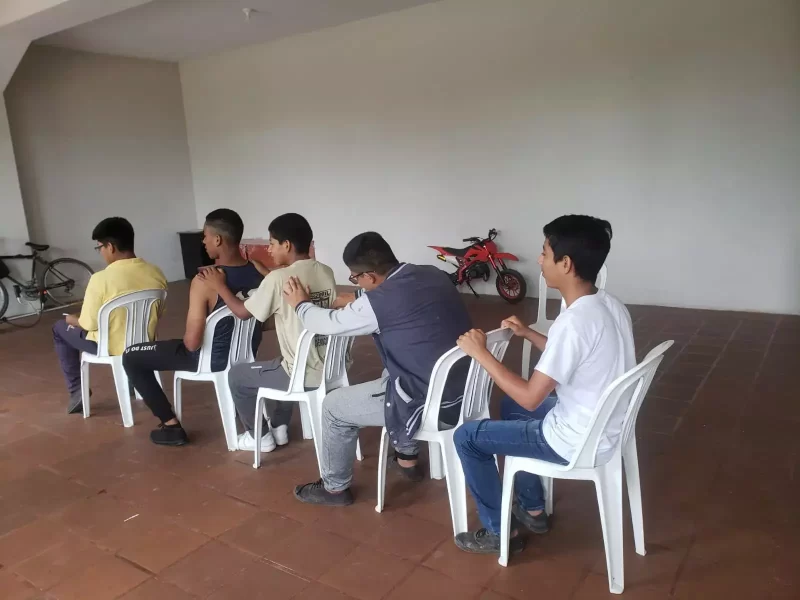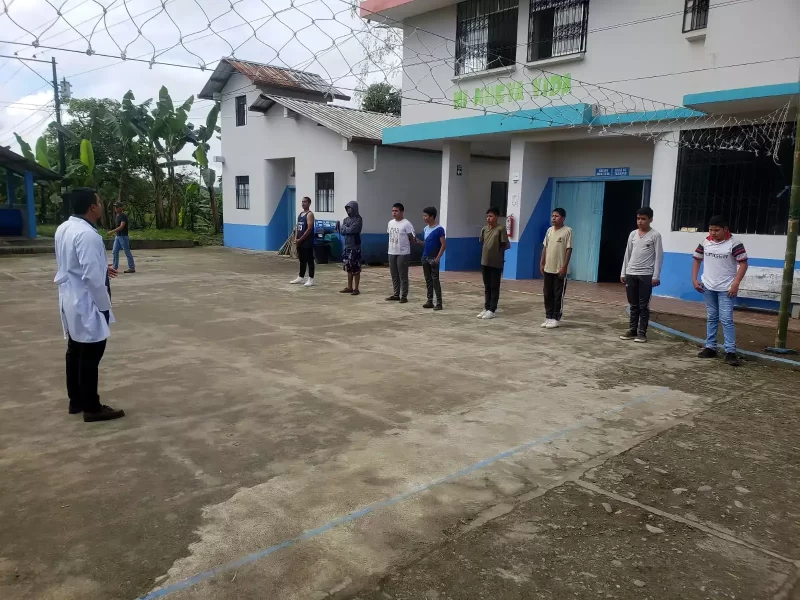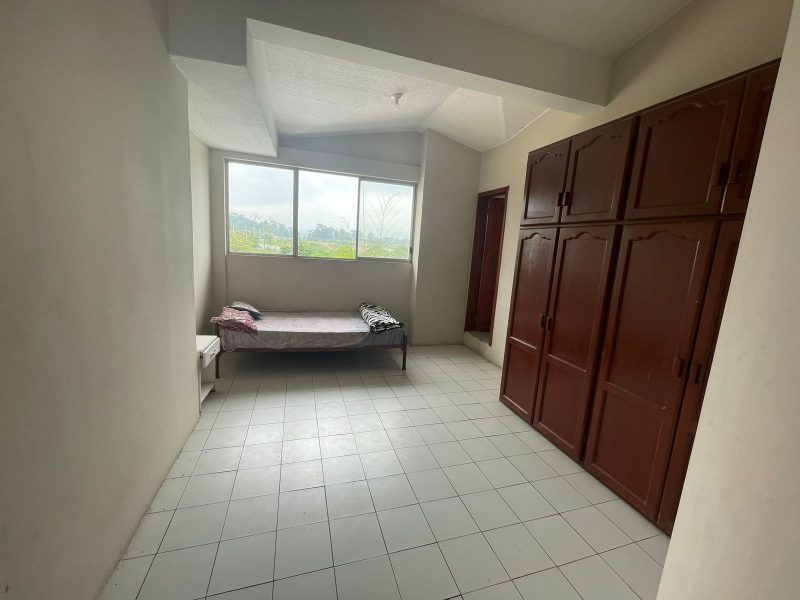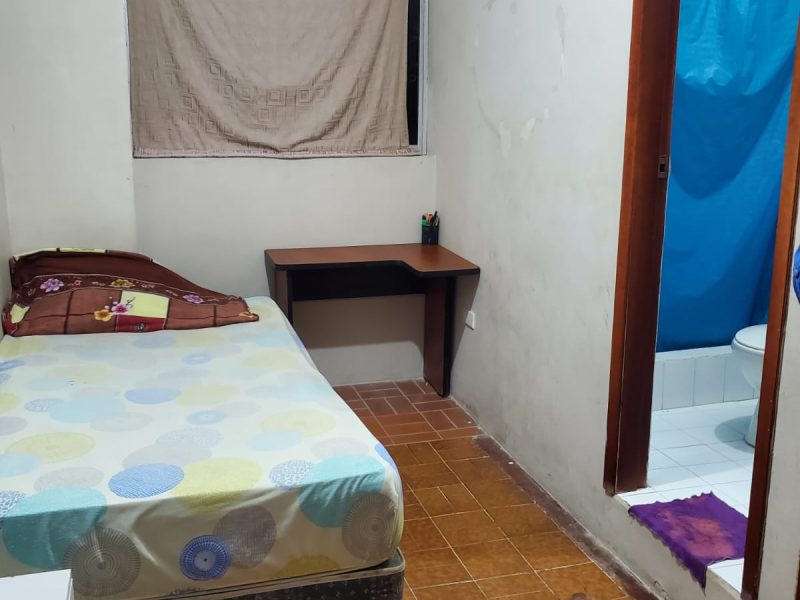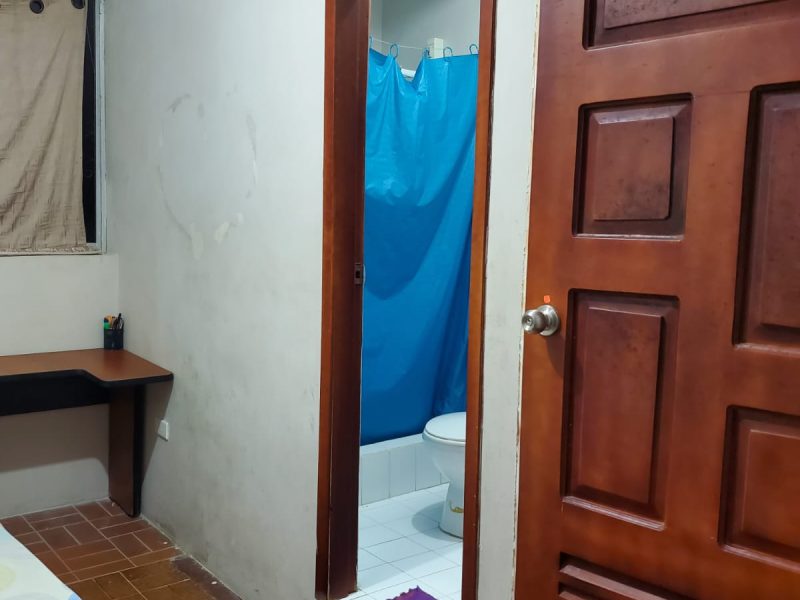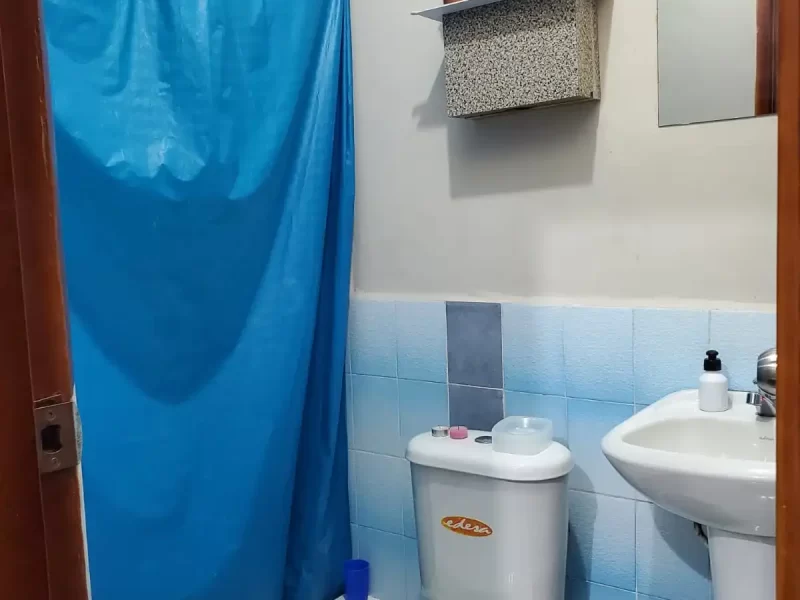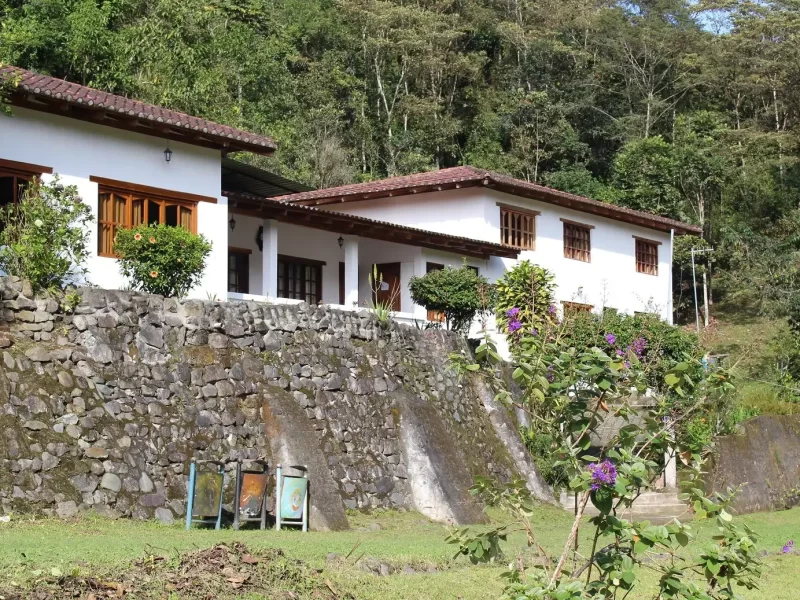WHY we need you in Ecuador
- Ecuador has been grappling with deforestation, particularly in its Amazon rainforest regions. The rate of deforestation has varied over the years, with periods of increased forest loss due to activities such as logging, agriculture expansion, and oil exploration.
- Deforestation in Ecuador has significant environmental consequences, including habitat loss for numerous species, increased greenhouse gas emissions, and disruption of local ecosystems.
- Ecuador continues to face challenges related to poverty. The poverty rate in the country fluctuates, but a significant portion of the population lives below the poverty line.
- Limited access to quality education and healthcare services can hinder social mobility and contribute to the cycle of poverty for many Ecuadorians.
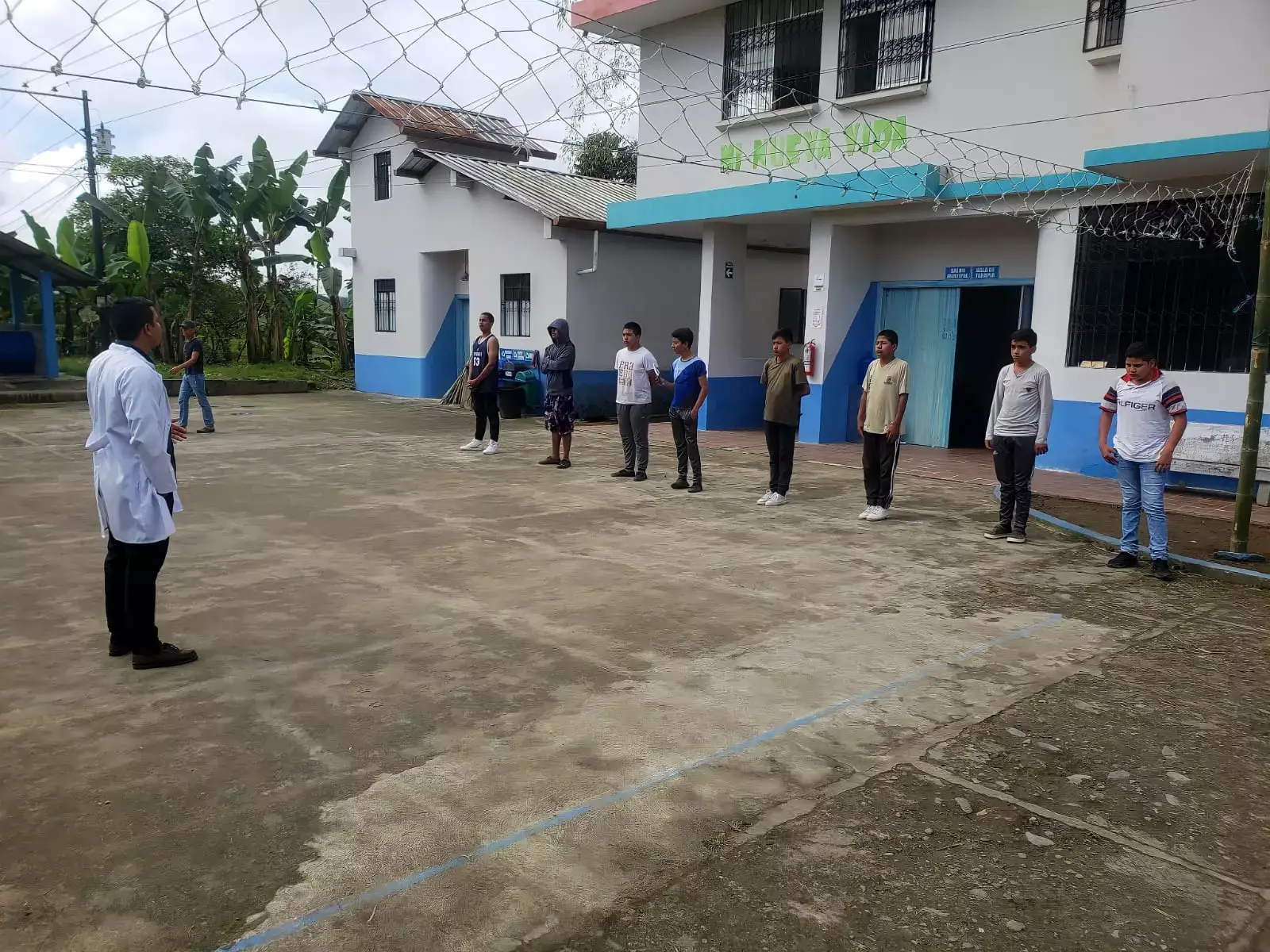
HOW can you help?
- To be able to work in team
- To provide our youth with unforgettable experiences
- Support in prevention activities with the community
- Good will, energy and predisposition.
WHAT can you do?
- Occupational tasks (agricultural, cooking, sports, crafts, art)
- Support in school tasks
- Help with the improvement of the quality of life of the Ecuadorian youth
- Promote through various strategies the prevention of the consumption of drugs and alcohol at an early age.
Why Involvement Volunteers International?
- Non Profit Org & Charity with 35+ Years Experience
- Amazing Projects to Choose From in Ecuador
- Social Experiences - Sharing with International Volunteers
- Excellent Safety Record, In-Country 24/7 Support & Emergency Assistance
- 1 Application Fee - Multiple Countries
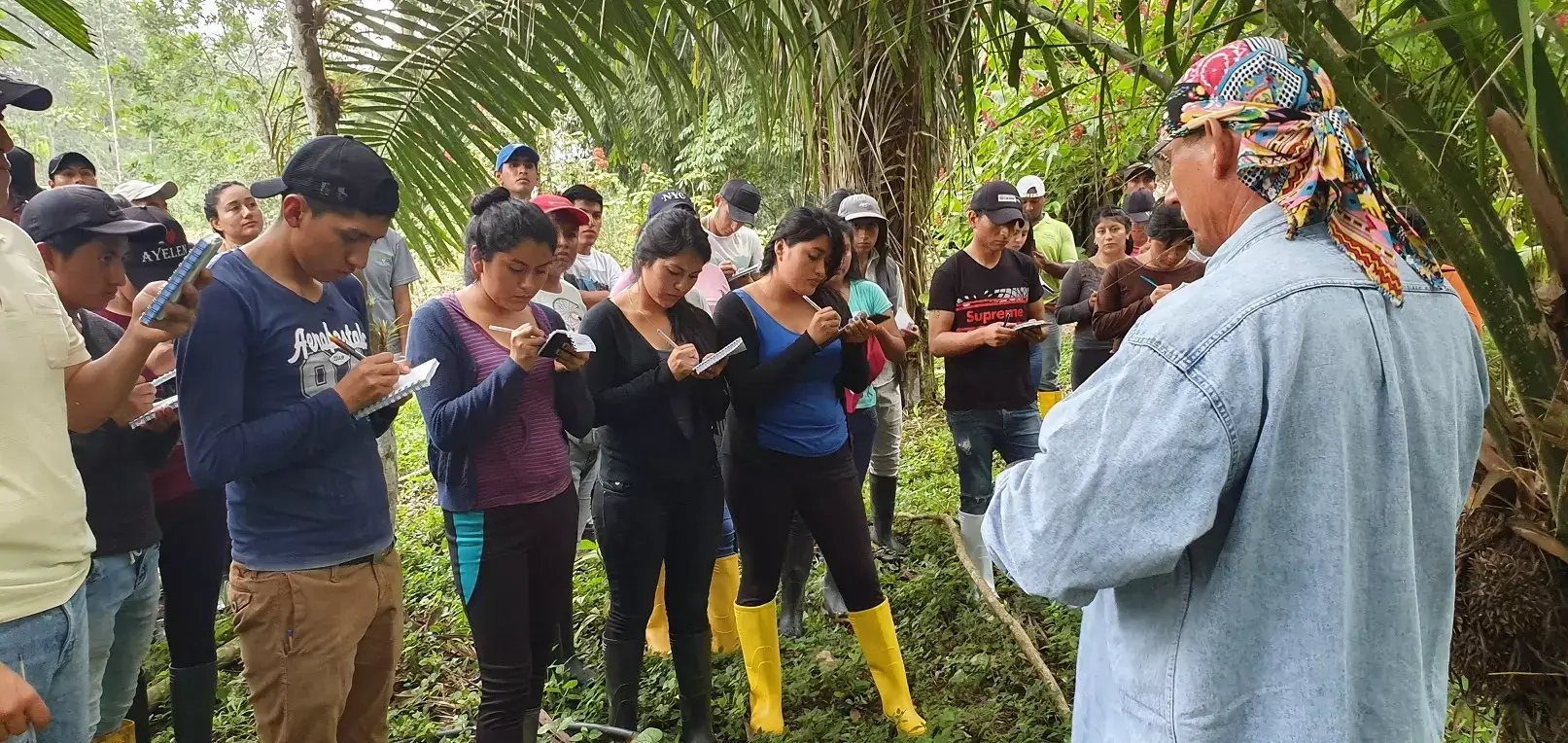
PROJECT NAME: BOYS YOUTH DRUG & ALCOHOL SUPPORT
LOCATION: SANTO DOMINGO
START DATES: WEEKLY (Sep-Jul)
ACCOMMODATION: VOLUNTEER HOUSE
MIN DURATION: 12 WEEKS
MIN AGE: 18+
SPECIAL REQUIREMENTS: Male applicants only, Spanish is necessary, Apply 3 months in advance
Overview
The centre you will work at is the sole legally established facility in Santo Domingo de Los Tsachilas, dedicated to assisting male adolescents aged 12 to 17 years and 6 months. Many are dealing with substance abuse issues, specifically involving drugs and alcohol. We provide comprehensive professional services, including psychology, general medicine, social work, pedagogical instruction, nursing, spiritual therapies, occupational therapies, recreational activities, and personal development experiences.
Situated in a natural environment, it is distanced from the city’s noise and easily accessible via functional roads. This infrastructure comprises a kitchen, dining area, therapy rooms, workshops, offices, laundry facilities, green spaces, sports fields, and more.
The boys live in the centre from 6 months up to one year. It’s similar to a children’s home. However, this will change a bit. Right now, there are 5 boys living here, in different phases of their stay here. The clinic has recently signed an agreement of cooperation with the city, which will most likely mean up to 10 inpatients (internos) and possibly also 20 outpatients (ambulatorios) who only visit during the day to attend therapy and other activities. This is yet to be confirmed by the city council however.
You may also have the chance to work alongside the local nuns, who are located some 300m from the clinic. The boys spend time with the nuns few days a week, usually go there to help with tasks in the seminary. There’s also a weekly mass organised just for the boys at the seminary. You are welcome to go along to this, if you wish.
Our objective is to contribute to the enhancement of the quality of life for Ecuadorian youth as a part of civil society. We strive to prevent early-age drug and alcohol consumption through various strategic initiatives and raise awareness in society about this growing issue affecting one of the most vulnerable age groups, teenagers.
Our primary goal is to strengthen family values and empower our youth to become independent individuals with dreams and aspirations. Over time, our efforts and experience have enabled us to guide our young participants in making informed decisions regarding their career paths. Today, we have young individuals attending universities and working diligently to achieve their professional aspirations.
Location
Santo Domingo is a city located in western Ecuador. It serves as the capital of Santo Domingo de los Tsáchilas Province, and is situated in the western lowland region of Ecuador, known as the coastal or “Costa” region. Santo Domingo is known for its cultural diversity, with both indigenous and mestizo (mixed indigenous and European) populations living in the region. The city has experienced significant growth and development in recent years, becoming an important economic and commercial centre in western Ecuador. Santo Domingo is known for its pleasant climate, as it enjoys a tropical savanna climate with warm temperatures year-round. The province is also characterized by lush vegetation and is known for its agricultural activities, including the cultivation of tropical fruits and cocoa.
Project Tasks
- Counselling, group therapy
- Education, talks on different topics
- Social work and activities
Food & Accommodation
Upon arrival in Quito, volunteers are required to visit the main house to receive essential safety guidelines and receive information about the country. Accommodation is provided in the main house, where you will stay in dormitories with 1-4 people per room. Typically, you will spend 1-2 days in Quito, dependent on your arrival schedule.
You will stay in the same accommodation as the boys, and the other staff member and volunteers. Volunteers stay on the top floor. There is a private bathroom and basic but comfortable rooms for volunteers. There is a shared lounge space downstairs and outside, where you may play sports, or watch tv, etc. There is also a separate shared space upstairs for volunteers if you wish to have evenings free.
You will receive 3 meals a day. The food will be local Ecuadorian cuisine, vegetarians are welcome but we are not able to cover vegans needs, because they are very strict. Vegetarianism and veganism are not part of the Ecuadorian culture.
Education
Projects
- Kindergarten Education
- Boys Youth Support
- Special Needs Support
-
12 Weeks - $1300
-
4 Months - $1700
-
5 Months - $2100
-
6 Months - $2500
What's Included
-
Accommodation
-
Meals
-
1 Day Orientation
-
24/7 In-Country Support
-
Project Materials & Equipment
-
Pre-departure Expert Advice
-
Preperation Tools & Checklists
-
Certificate of Completion
- Application fee is one off per person (unlimited placements)
- Click Here to convert the below prices to your local currency
- Discounts may apply if travelling in a pair or group!
- All credit card /international fees included in below pricing! 🙂
FAQ
Whilst you do not need specific experience for this, the program would be preferrable for those with specialist skills, such as social workers, counsellers, etc.
The boys are generally mild mannered but you must also be prepared for some to be distruptive at times, although most are well behaved.
- Accommodation
- 3 meals p/day & 2 p/day at weekends
- 1 day orientation
- In country 24/7 support & emergency assistance
- Fundraising support
- University course credits (where applicable)
- Certificate of Completion
- Airfares
- Travel Insurance
- Transportation
- Tours, Souvenirs & spending money
Individual volunteers are provided with essential information encompassing safety guidelines, the political landscape in Ecuador, strategies for addressing challenges, and pertinent tourist details. The orientation takes around 2-3 hours to ensure individual volunteers are well-prepared. For groups or long-term volunteers, we extend this orientation to a more extensive 2-3-day program, as they also need time to facilitate the visa legalisation process.
*No transportation is included
Volunteers normally arrive to Quito (this cost is not included but a taxi can be booked for you). The official cost is 30 dollars, and it takes around 1 hour.
Once arrived, you will get instructions about safety rules, political situation of the country, how to get to the project, etc. You will likely spend one night in the foundation house in Quito, and the next day after breakfast, be accompanied by someone of the organisation to the bus terminal to take the correct bus. The taxi ride to go to the bus terminal, costs around 5 dollars, and it takes 20 minutes.
The day is split approximately like this:
~8:00 Breakfast & cleaning up after breakfast
– 8:30 NA meeting, 3-4 days a week
– 9:00-13:00 Various activities including conversations on different topics, group/individual therapy, household chores, karate, etc.
~13:00 Lunch
~14:00-15:30/16:00 Downtime
~16:00-19:00 Various activities, often in the seminary with the sisters (nuns) living there
~19:00 Dinner
~20:00 Free time, they often watch movies or play the card game UNO
~21:30 The boys go to sleep
This is the general timetable of a day and it can change based on each day, on the weekend it’s even more relaxed. You don’t have to attend every single activity, as the working hours are very flexible.
Here are some must-visit places and things to do in this beautiful country:
Explore the Galápagos Islands: Discover the unique wildlife, pristine beaches, and extraordinary marine life of this UNESCO World Heritage site through snorkelling, diving, or guided tours.
Visit Quito’s Historic Centre: Wander through Quito’s well-preserved colonial old town, a UNESCO World Heritage site, and explore its churches, plazas, and museums.
Hike in the Andes: Embark on a trek through the Andean highlands, visiting iconic spots like Cotopaxi National Park, Quilotoa Crater Lake, and the scenic town of Banos.
Amazon Rainforest Adventures: Explore the Amazon Basin, go wildlife spotting, visit indigenous communities, and take a canoe ride along the Amazon River.
Climb Cotopaxi Volcano: For the adventurous, attempt to summit Cotopaxi, one of the world’s highest active volcanoes.
Relax in the Thermal Baths of Banos: Soak in the natural hot springs in the town of Banos, surrounded by lush rainforest.
Discover Cuenca: Explore the charming city of Cuenca, known for its well-preserved colonial architecture, art galleries, and rich cultural heritage.
Experience the Otavalo Market: Visit the famous Otavalo market, one of South America’s largest indigenous markets, to shop for textiles, handicrafts, and local produce.
Whale Watching: Head to the coastal town of Puerto Lopez for a chance to witness humpback whales during their migratory season.
Visit the Ingapirca Ruins: Explore the ancient Inca ruins at Ingapirca, Ecuador’s largest archaeological site.
Chocolate Tour: Take a tour of a cacao plantation and learn about the chocolate-making process, from bean to bar.
Attend a Festival: Experience Ecuador’s vibrant culture by participating in local festivals and celebrations, such as Inti Raymi or the Diablada.
Bird Watching: Ecuador is a paradise for bird enthusiasts. Consider birdwatching in the cloud forests of Mindo or in the Yasuni National Park.
Ride the Devil’s Nose Train: Take a thrilling ride on the Devil’s Nose Train, an engineering marvel that traverses steep slopes and offers breathtaking views.
Relax on the Pacific Coast: Enjoy the sun, surf, and seafood on the beautiful beaches of Ecuador’s Pacific Coast.
You must be over 18 years old and a min of 12 weeks is required for this program. It is also only open to male volunteers.
Ecuador, situated in the northwestern part of South America, is a country of remarkable geographical and cultural diversity. It is bordered by Colombia to the north, Peru to the south and east, and the Pacific Ocean to the west. Ecuador’s landscape is exceptionally varied, encompassing the towering Andes Mountains, dense Amazon rainforests, and the world-famous Galápagos Islands.
Its capital, Quito, is one of the highest capital cities in the world and is renowned for its well-preserved colonial old town, a UNESCO World Heritage site. The country is celebrated for its indigenous heritage, with numerous indigenous communities inhabiting different regions.
Ecuador’s economy relies on sectors like oil production, agriculture, and tourism, which thrives thanks to its unique natural wonders and vibrant cultural traditions. This nation, despite its relatively small size, offers an incredible diversity of experiences, making it a compelling destination for travellers and a place of significant cultural and ecological importance.
The country’s climate can generally be categorized into four main zones:
- Coastal Zone (Costa): The coastal region of Ecuador has a tropical and humid climate with two distinct seasons. The wet season, from December to May, brings warm temperatures and heavy rainfall, while the dry season, from June to November, is characterized by cooler temperatures and lower precipitation.
- Andean Highlands (Sierra): The Andean highlands, where many major cities like Quito and Cuenca are located, have a more temperate climate. The weather varies with altitude, but in general, it can be cool to mild during the day and colder at night. Rainfall is distributed throughout the year, with slightly wetter months from October to May.
- Amazon Rainforest (Oriente): The Amazon basin in eastern Ecuador experiences a tropical rainforest climate, characterized by high temperatures and significant rainfall throughout the year. This region has high humidity and lush vegetation.
- Galápagos Islands: The Galápagos Islands, located in the Pacific Ocean, have a unique climate. The islands experience a warm and dry season from June to December and a hot and wet season from January to June. The water temperatures are influenced by ocean currents and vary, making it suitable for diverse marine life.
Ecuador’s cultural landscape is a tapestry woven from the threads of indigenous heritage, mestizo influences, and Afro-Ecuadorian traditions. Indigenous communities, such as the Quechua and Shuar, maintain their distinct customs, clothing, and rituals, enriching the nation’s cultural fabric.
The mestizo majority reflects a fusion of indigenous traditions and Spanish elements, evident in art, cuisine, and everyday life. Afro-Ecuadorian culture, notably prevalent along the coast, contributes its unique music, dance, and culinary delights to the mosaic. Religion, primarily Roman Catholicism, deeply influences Ecuadorian culture, blending indigenous practices with Catholic celebrations.
The country’s vibrant festivals, such as Inti Raymi and regional fiestas like Carnaval, showcase lively parades, music, and dance. Ecuador’s cuisine is a reflection of its diverse regions, offering seafood delicacies on the coast, hearty Andean dishes, and Amazonian flavours like maito.
With a rich artisanal tradition, Ecuador is renowned for its textiles, ceramics, and woodwork. Language-wise, Spanish is the official tongue, but indigenous languages like Quechua persist. Beyond its cultural heritage, Ecuador’s commitment to conservation is evident in its natural wonders, particularly the Galápagos Islands, which symbolize both ecological and cultural preservation.
30 Years Non Profit Experience
IVI is an Australian charity & non profit organisation founded in 1989 and is one of the pioneers of overseas volunteering successfully placing over 20,000 volunteers globally.
Affordable Volunteer Travel
We’re not motivated by shareholder profits. Our fees are fully transparent to ensure maximum benefit where it is most needed.
Safe & Responsible Projects
All projects include a dedicated 24/7 in-country management team, operational & risk assessment & overseas support contact. All projects are personally inspected to ensure very high quality.
Work Experience & University Credits
We place thousands of Uni students and can assist you with course credits and in-field experience points. Many of our project coordinators are qualified practitioners in their respective fields allowing unique in-field supervision and Uni accreditation options
Check out this amazing blog with step by step info on how to raise funds for your overseas volunteer experience to help maximize your impact abroad. Guide to Fundraising
Weekends & Extra Tours
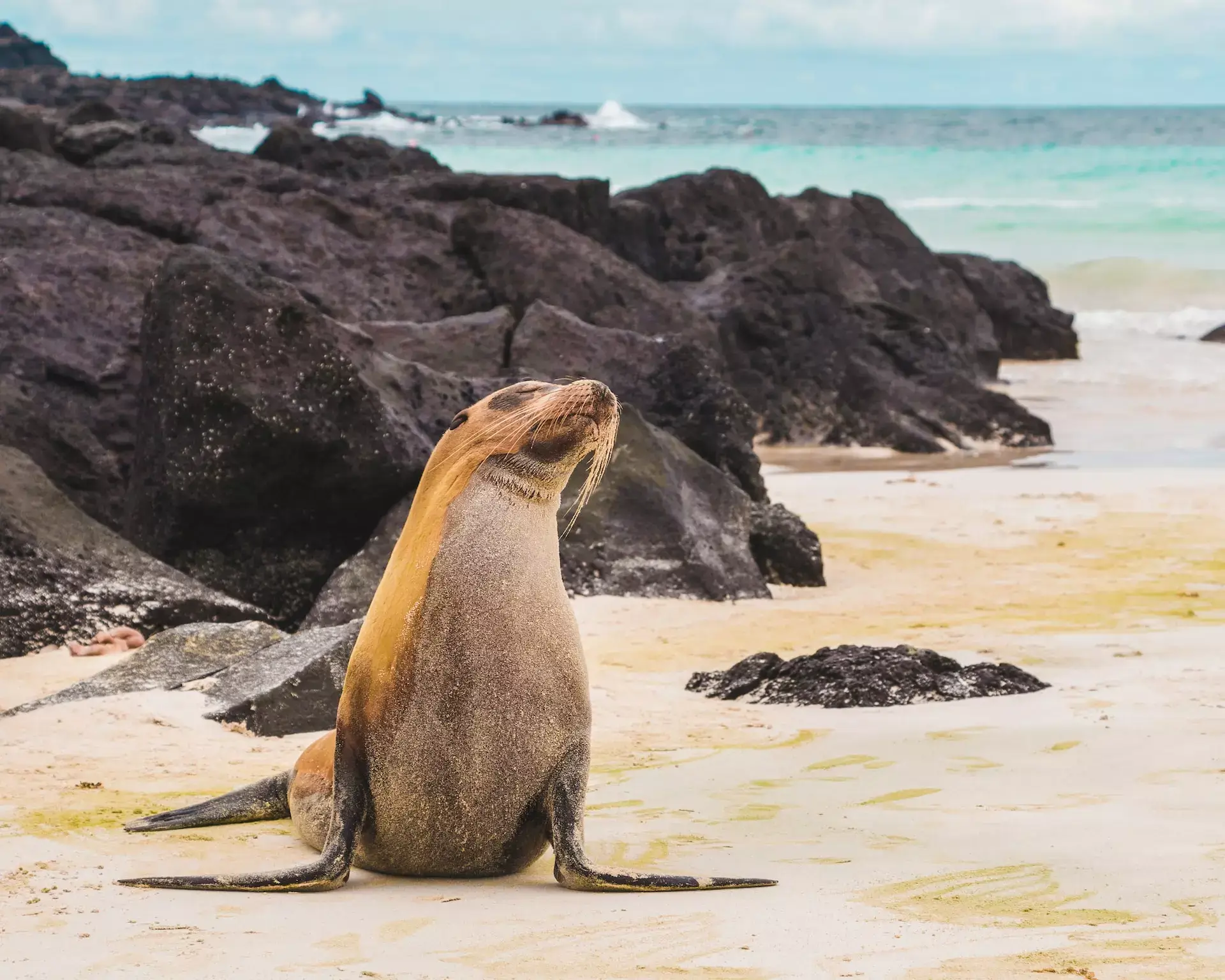
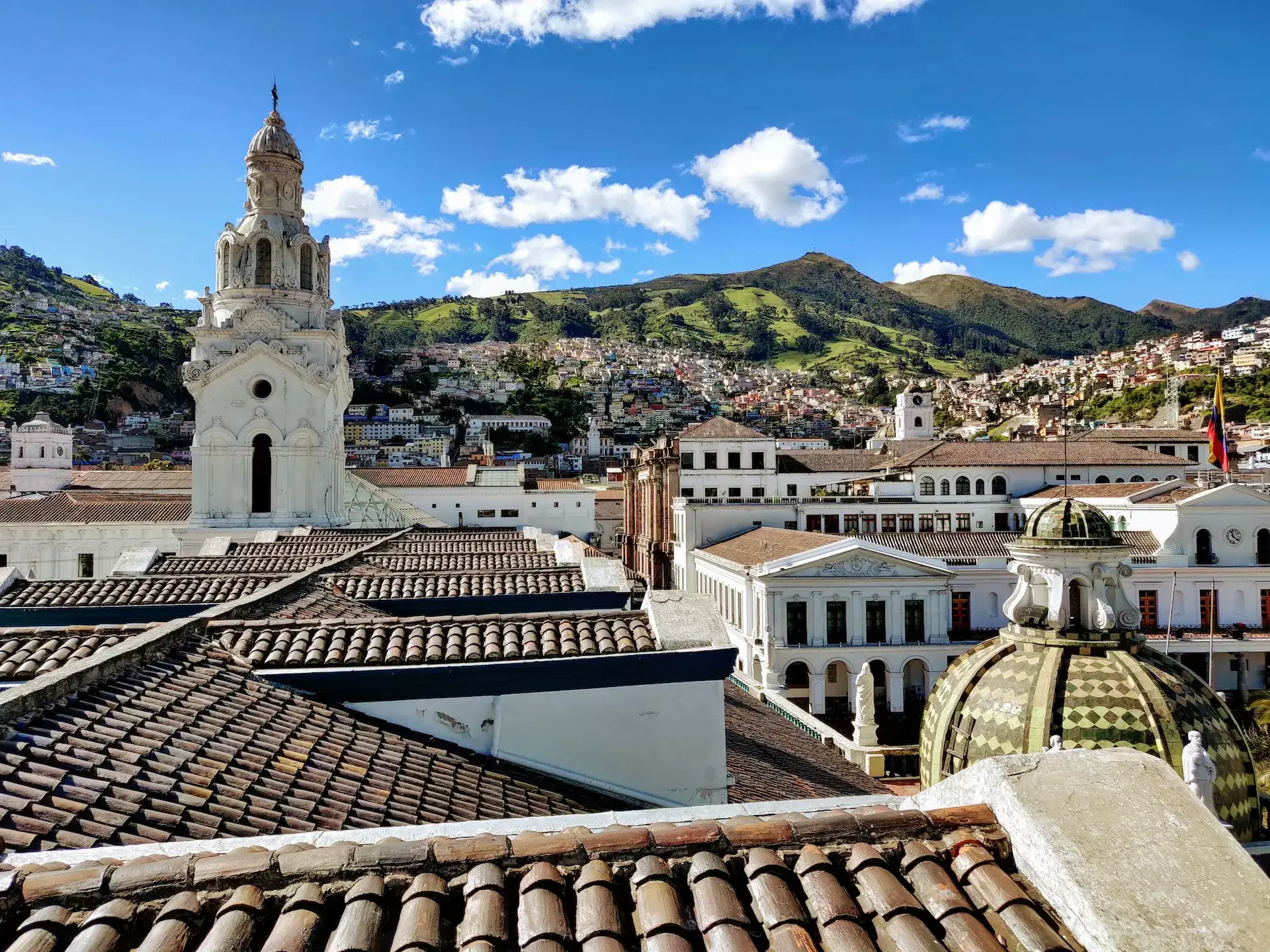

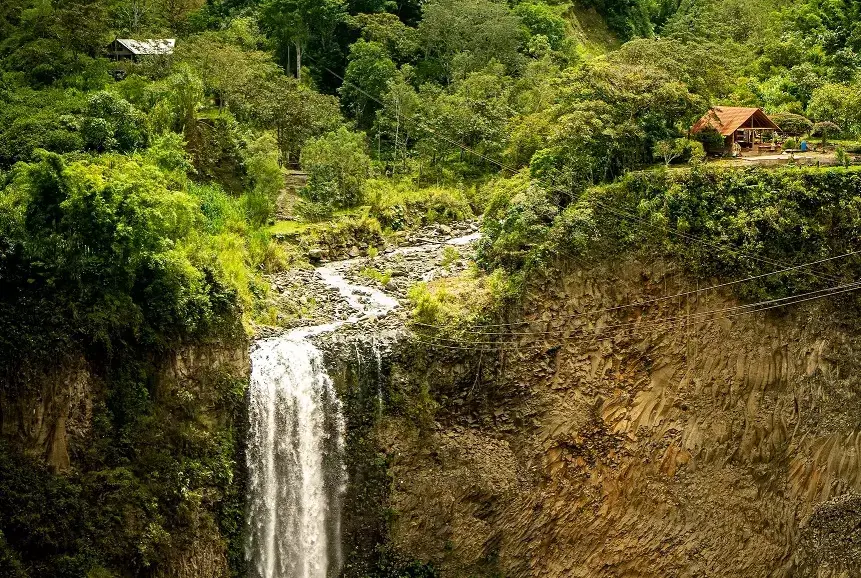
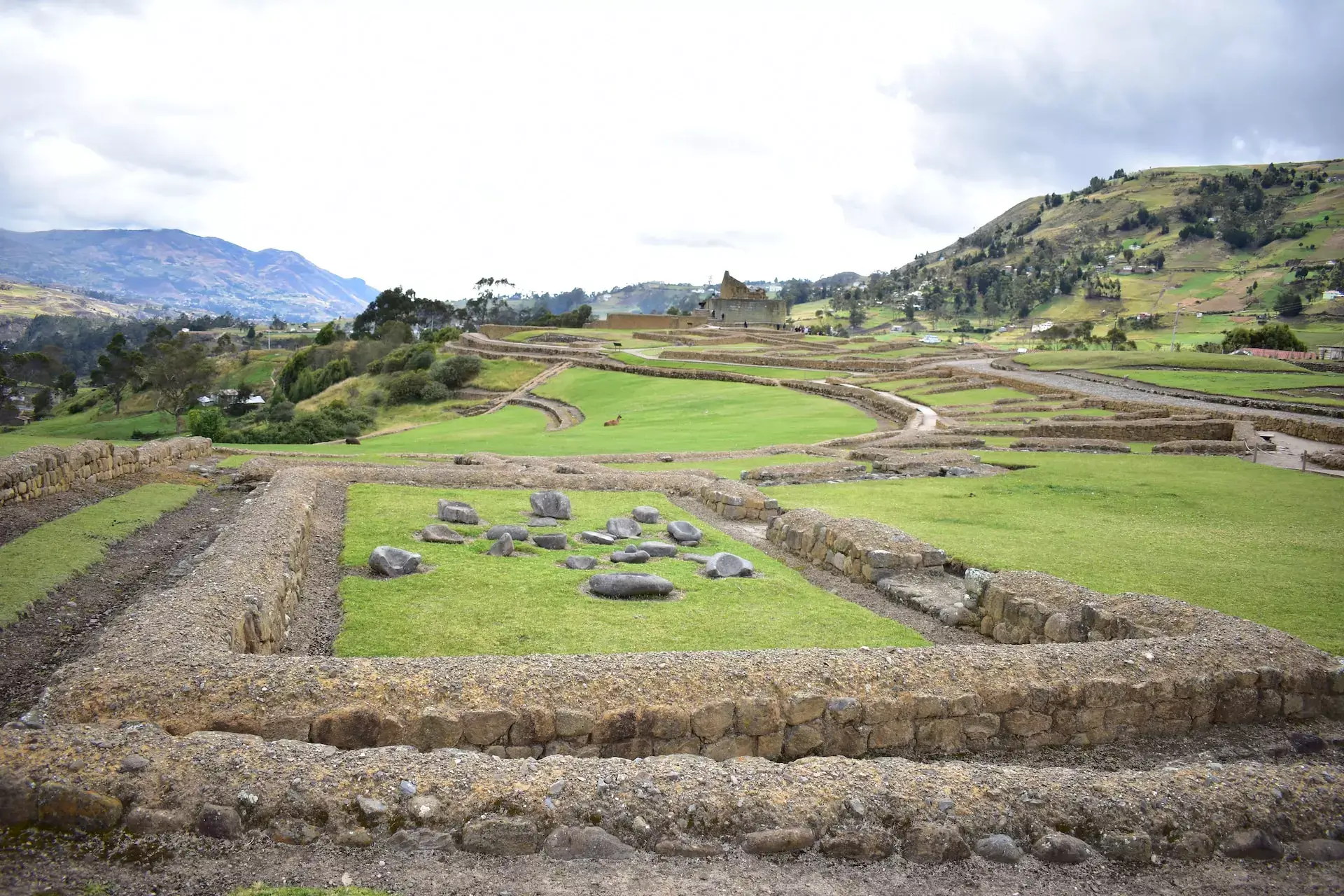
 Involvement Volunteers International
Involvement Volunteers International 